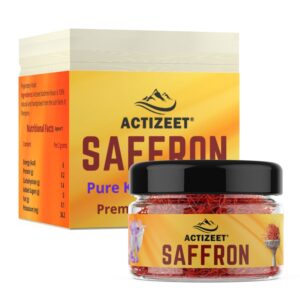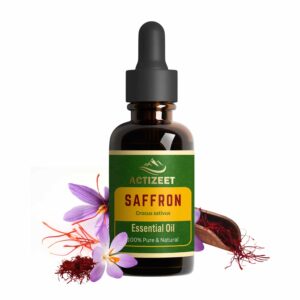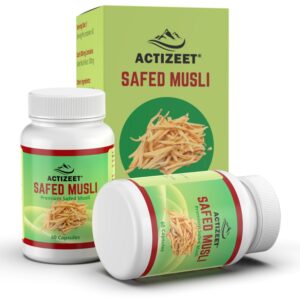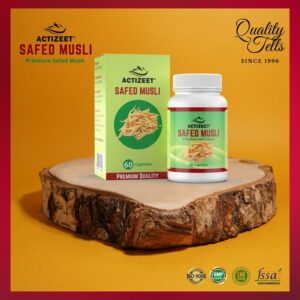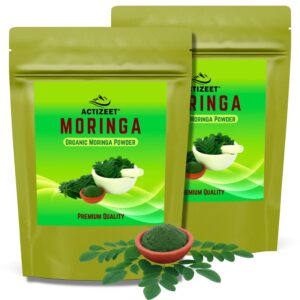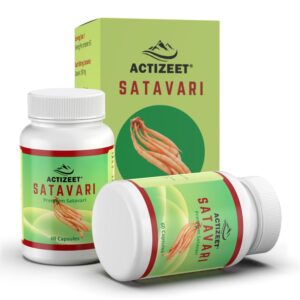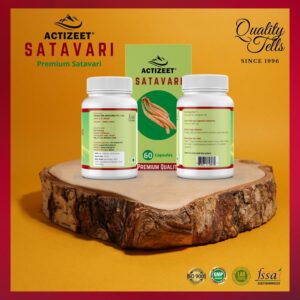For centuries, saffron has been used in traditional medicine to treat a variety of ailments. But how does it really affect our heart health? In this article, we’ll explore the science behind saffron’s potential to reduce high blood pressure and cholesterol levels, while improving cardiovascular function and possibly even preventing heart disease. Read on to find out if adding a touch of saffron to your diet will be beneficial for your long-term heart health.
Table of Contents
ToggleIntroduction
Saffron is a spice that has been used in traditional medicine for centuries. Modern science is now beginning to uncover some of the potential health benefits of saffron, including its effects on heart health.
Saffron has been shown to improve blood pressure and cholesterol levels in people with heart disease. It may also help to prevent the development of cardiovascular disease by reducing inflammation and oxidative stress. Additionally, saffron has been shown to have anti-cancer properties and may help to protect against other chronic diseases such as Alzheimer’s disease.
While more research is needed to confirm the exact role of saffron in heart health, these preliminary findings suggest that saffron may be a valuable addition to your diet if you are looking to improve your cardiovascular health.
What is heart health?
Heart health is the level of health of the heart and blood vessels. The heart is a muscle that pumps blood around the body, and the blood vessels are the tubes that carry the blood. Heart health is important because if the heart isn’t working properly, it can lead to problems such as a heart attack or stroke. There are many things that can affect your heart health, including your lifestyle and your genes.
There are many things you can do to keep your heart healthy. Eating a healthy diet and exercising regularly will help to keep your heart strong and reduce your risk of developing cardiovascular disease. quitting smoking, maintaining a healthy weight, and managing stress levels will also help to keep your heart healthy. If you have any concerns about your heart health, speak to your doctor or healthcare provider.
Is saffron a herb?
Saffron is a herb that has been used in traditional medicine for centuries. The active ingredient in saffron is crocin, which is thought to have antioxidant and anti-inflammatory properties. Saffron has been shown to improve blood pressure and cholesterol levels in people with heart disease, and it may also help to protect against Alzheimer’s disease and other forms of dementia.
How does saffron help heart health?
Saffron is often touted as a natural remedy for a variety of ailments, including heart health. While there is some evidence to support these claims, more research is needed.
Saffron has been shown to have anti-inflammatory and antioxidant properties, which may help protect the heart from damage. Additionally, saffron may help lower cholesterol and blood pressure levels, both of which can reduce the risk of heart disease.
While more studies are needed to confirm the benefits of saffron for heart health, it is generally considered safe to consume in small amounts. If you’re interested in trying saffron for heart health, talk to your doctor first to see if it’s right for you.
The role of saffron in reducing high blood pressure and cholesterol levels
Saffron is a spice that has been used for centuries in traditional medicine. It is derived from the Crocus sativus plant and has a range of purported health benefits. One of these is its ability to reduce high blood pressure and cholesterol levels. Several studies have shown that saffron can help to lower blood pressure in those with hypertension.
One study found that taking 30mg of saffron per day for four weeks resulted in a significant reduction in systolic blood pressure (the top number in a blood pressure reading). Saffron also seems to be effective in reducing levels of LDL (bad) cholesterol and increasing levels of HDL (good) cholesterol.
So, if you’re looking for natural ways to help reduce your blood pressure and cholesterol levels, saffron may be worth a try. Just be sure to consult with your doctor first, as it may interact with certain medications.
Saffron’s potential to improve cardiovascular function and prevent heart disease
Saffron has long been used in traditional medicine for a variety of purposes, including heart health.
Some recent scientific studies have shown that saffron may indeed help improve cardiovascular function and prevent heart disease. For example, one study showed that saffron extract was able to significantly lower blood pressure in people with hypertension.
Additionally, another study found that saffron may help reduce the risk of atherosclerosis (hardening of the arteries), a leading cause of heart disease. So, while more research is needed in this area, there is certainly promising evidence that saffron could be an effective natural treatment for heart disease.
If you are looking for a natural way to improve your cardiovascular health, consider adding saffron to your diet.
Is saffron good for the heart?
Saffron is a spice that has been used for centuries in traditional medicine. It is thought to have many health benefits, including the ability to improve heart health.
There is some evidence to suggest that saffron may be beneficial for heart health. One study found that taking 30 mg of saffron per day for 4 weeks improved blood pressure and cholesterol levels in people with high blood pressure. Additionally, another study showed that taking 150 mg of saffron daily for 8 weeks improved blood pressure and heart rate in people with coronary artery disease.
While the research on saffron and heart health is promising, more studies are needed to confirm these effects. Additionally, it’s important to note that saffron can be costly and should be used sparingly. If you’re interested in trying saffron, speak with your healthcare provider first to discuss whether it’s right for you.
Does saffron increase heart rate?
Saffron is a spice with a long history of use in Asia and the Middle East. In recent years, it has become popular in the West as well. Saffron is made from the dried stigmas of a plant in the Crocus genus.
There is some evidence that saffron may help to increase heart rate. One study found that taking 30 mg of saffron extract per day for four weeks increased heart rate by an average of 3.6 beats per minute compared to a placebo group. However, this study was small and more research is needed to confirm these results.
Saffron may also have other benefits for heart health. It has been shown to reduce blood pressure and cholesterol levels in people with cardiovascular disease.
Additionally, saffron has anti-inflammatory properties which may help to protect the heart from damage. Overall, there is preliminary evidence that saffron may have some benefits for heart health. However, more research is needed to confirm these effects. If you are considering taking saffron supplements, be sure to speak with your healthcare provider first to ensure it is safe for you.
Precautionary measures
When it comes to saffron and heart health, there are a few precautionary measures you should take. First, as with any supplement, it’s always best to speak with your doctor before adding anything new to your diet. This is especially important if you have any existing heart conditions or are taking any medications.
Additionally, saffron should be used in moderation. It’s generally recommended that people only consume a few strands of saffron per day. Too much saffron can lead to side effects like nausea, vomiting, and diarrhea.
When it comes to incorporating saffron into your diet, there are a few different ways you can do so. One option is to add a few strands of saffron to your food while cooking. Another option is to take saffron supplements in capsule form. Whichever method you choose, make sure you stay within the recommended dosage.
By following these precautionary measures, you can help ensure that saffron is safe for you and that you’re getting the most out of its potential benefits for heart health.
Conclusion
In conclusion, incorporating saffron into a healthy lifestyle can have numerous benefits for the heart. Saffron can help regulate cholesterol and blood pressure levels, reduce oxidative stress in the body, and protect against cardiovascular disease thanks to its anti-inflammatory properties.
While more studies are needed to better understand how this spice affects different individuals, it is clear that adding saffron to your diet offers many potential health benefits—especially when paired with an overall balanced approach to eating.
BUY PURE SAFFRON (KESAR)
Get your hands on the purest saffron, now available on our store! Our Kashmiri saffron is known for its amazing heart-health benefits. This 100% pure saffron is harvested in the Himalayas and has been traditionally used in Ayurvedic medicine for centuries. Try it out now and experience the goodness of nature in your everyday life
-
Rated 4.82 out of 5
₹1,200.00Original price was: ₹1,200.00.₹900.00Current price is: ₹900.00. Incl. GST ADD TO CARTBuy Now -
Rated 4.86 out of 5
₹2,400.00Original price was: ₹2,400.00.₹1,600.00Current price is: ₹1,600.00. Incl. GST ADD TO CARTBuy Now -
Rated 4.85 out of 5
₹4,800.00Original price was: ₹4,800.00.₹2,800.00Current price is: ₹2,800.00. Incl. GST ADD TO CARTBuy Now -
Essential Oils, Kesar, Saffron, Zafran
Rated 4.67 out of 5₹1,900.00Original price was: ₹1,900.00.₹1,450.00Current price is: ₹1,450.00. Incl. GST ADD TO CARTBuy Now
Related Products
-
Himalayan Shilajit, Pure shilajit, Shilajit, SHUDDH SURYA TAPI SHILAJIT
Rated 4.74 out of 5₹4,950.00Original price was: ₹4,950.00.₹3,950.00Current price is: ₹3,950.00. Incl. GST ADD TO CARTBuy Now -
Rated 4.86 out of 5
₹2,400.00Original price was: ₹2,400.00.₹1,600.00Current price is: ₹1,600.00. Incl. GST ADD TO CARTBuy Now -
Rated 4.82 out of 5
₹2,400.00Original price was: ₹2,400.00.₹1,600.00Current price is: ₹1,600.00. Incl. GST ADD TO CARTBuy Now -
Rated 4.84 out of 5
₹2,400.00Original price was: ₹2,400.00.₹1,600.00Current price is: ₹1,600.00. Incl. GST ADD TO CARTBuy Now
-
Rated 4.00 out of 5
₹2,400.00Original price was: ₹2,400.00.₹1,600.00Current price is: ₹1,600.00. Incl. GST ADD TO CARTBuy Now -
Rated 4.80 out of 5
₹2,400.00Original price was: ₹2,400.00.₹1,600.00Current price is: ₹1,600.00. Incl. GST ADD TO CARTBuy Now -
Rated 4.71 out of 5
₹2,400.00Original price was: ₹2,400.00.₹1,600.00Current price is: ₹1,600.00. Incl. GST ADD TO CARTBuy Now -
₹2,400.00Original price was: ₹2,400.00.₹1,600.00Current price is: ₹1,600.00. Incl. GST ADD TO CARTBuy Now
Related posts:
- Saffron and Digestive Health
- Saffron And Mental Health
- Saffron Benefits: The Surprising Health Advantages of this Ancient Spice
- Saffron (Kesar) in Panaji (Goa)
- Saffron (Kesar) in Gangtok (Sikkim)
- Saffron (Kesar) in Kochi (Kerala)
- Saffron (Kesar) in Srinagar (Kashmir)
- Saffron (Kesar) in Aizawl (Mizoram)


